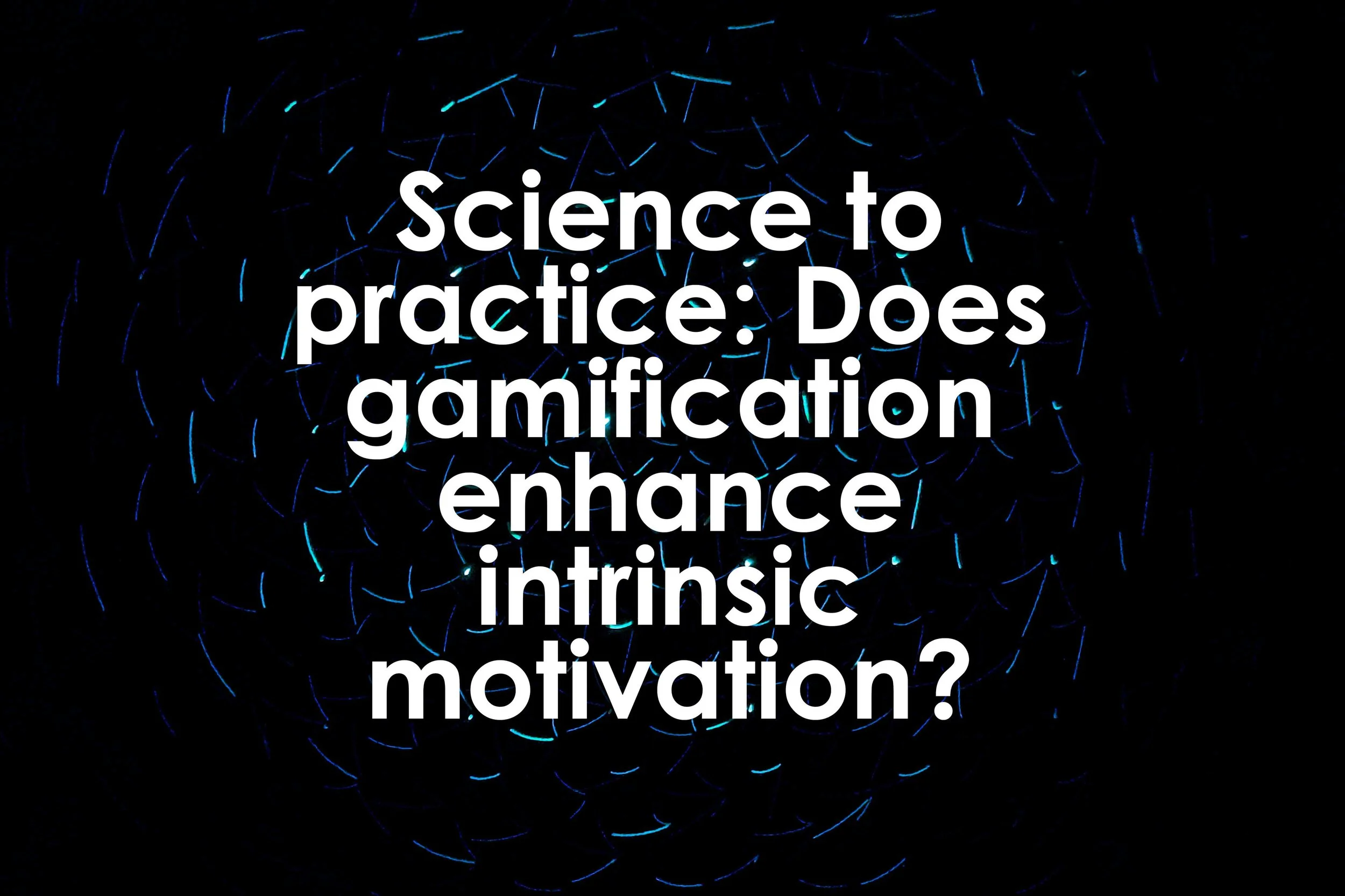Science to practice: Does gamification enhance intrinsic motivation?
Science to practice: Does gamification enhance intrinsic motivation?
Science to practice: Does gamification enhance intrinsic motivation?
By Matthew Jones, Jedediah E Blanton, and Rachel E Williams
Abstract
“Self-determination theory (SDT) has empirical support in understanding and enhancing motivation in a variety of contexts, including education settings. Niemac and Ryan have highlighted that using SDT in course design can lead to stronger fulfilment of an internal locus of causality regarding course work. One course design method anchored in SDT is gameful learning—structuring tasks that support intrinsic motivation, primarily increasing autonomy over learning. A gamified classroom (GC) may offer more assignments and points than minimally necessary for students to earn a passing mark, allowing students choice in which projects to pursue. Further research is needed to examine the degree to which students’ motivations differ between a GC and a non-gamified classroom (NGC). The purpose of the current study was to determine if students in a GC were more intrinsically motivated than students in NGC. Students were enrolled in an undergraduate kinesiology course using a GC design (n = 24) or NGC design (n = 26) and completed an online survey – derived from the intrinsic motivation inventory and the test anxiety questionnaire—at the beginning and end of the semester. In the GC, students started with zero points, and were offered multiple assignments with scaffolded difficulty to reach their desired grade. The NGC used a traditional 100% grade range, with only required assignments and exams, and students lost points for inadequate or inaccurate responses. Following analyses, it was revealed that students in the GC had higher perceptions of autonomy and competence than students in the NGC. Where these differences exist over time, along with differences in other subscales, will be discussed further. Educators seeking to enhance student motivation and engagement may therefore look to gamification as an appropriate methodology.”
Reference
Jones, M., Blanton, J. E., & Williams, R. E. (2022, January 11). Science to practice: Does ... - journals.sagepub.com. Retrieved April 6, 2022, from https://journals.sagepub.com/doi/abs/10.1177/14697874211066882?ai=1gvoi&mi=3ricys&af=R
Keywords
Course design, gamified learning, intrinsic motivation, pedagogy, self-determination theory, research

